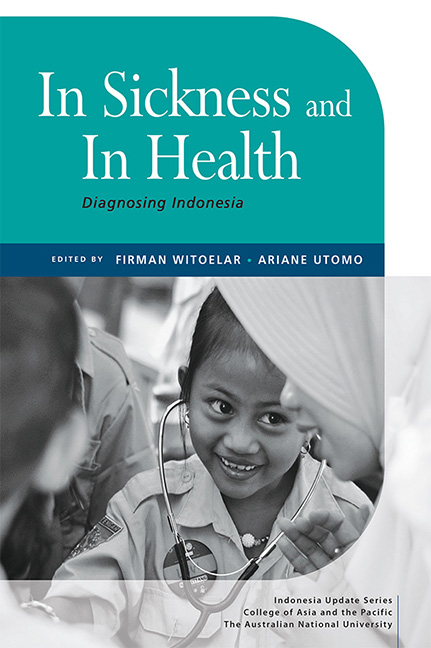10 - Disability in Indonesia: What can we learn from the available data?
Published online by Cambridge University Press: 09 January 2024
Summary
Disability can occur at any time during life—from birth to old age. It can be caused by a multitude of factors from poor nutrition to violence to poor health care. It can be mild or severe, and it could potentially affect a wide range of functional areas: mobility, vision, hearing, communication, psychosocial function limitations, etc. (Adioetomo et al. 2014: 2)
For many of us, the concept of disability is at once familiar and unknown. While it is common when considering disability to think of a woman in a wheelchair or a man who is blind, it is less usual to recall that ‘disability [also] encompasses the child born with a congenital condition such as cerebral palsy … the young soldier who loses his leg to a land mine, … the middle-aged woman with severe arthritis, [and] the older person with dementia, among many others’ (WHO and World Bank 2011: 7). In addition, the diversity of disability extends well beyond the type of health impairment to factors including severity, duration, age, age of onset, gender and income. For disabilities can be mild or severe, temporary or permanent, and can affect all people, whether they are young or old, men or women, rich or poor. Significantly, some factors appear to be more common than others (for example, disability tends to be more prevalent among women, older adults and the poor) but each set of circumstances gives rise to different needs and experiences, which are further influenced by the physical and cultural environment in which a person lives. Notably, around the world, and in developing countries in particular, this wide variation in the experiences and challenges faced by people with disabilities (PwD) and their families, and the policies and programs that could best support them, are still poorly understood, largely as a consequence of a lack of reliable, comparable data.
Indonesia recently passed Law No. 8/2016. This law follows the ratification of the United Nations Convention on the Rights of Persons with Disabilities in 2011 and commits the Indonesian government to the eradication of discrimination against PwD and to actively work to support and provide services to this segment of the population.
- Type
- Chapter
- Information
- In Sickness and In HealthDiagnosing Indonesia, pp. 172 - 200Publisher: ISEAS–Yusof Ishak InstitutePrint publication year: 2022

